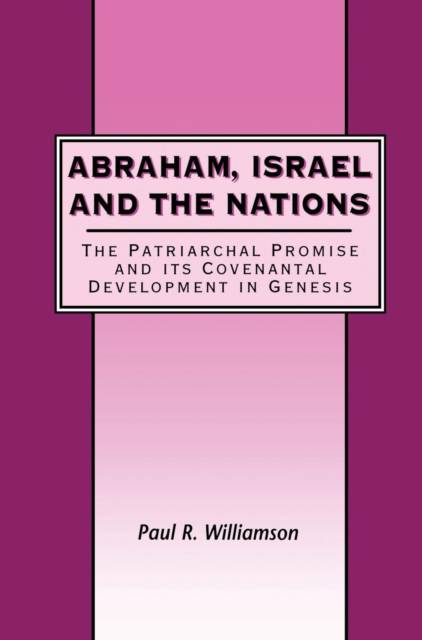
- Afhalen na 1 uur in een winkel met voorraad
- Gratis thuislevering in België vanaf € 30
- Ruim aanbod met 7 miljoen producten
- Afhalen na 1 uur in een winkel met voorraad
- Gratis thuislevering in België vanaf € 30
- Ruim aanbod met 7 miljoen producten
Zoeken
Abraham, Israel and the Nations
The Patriarchal Promise and its Covenantal Development in Genesis
Paul R Williamson
€ 440,95
+ 881 punten
Omschrijving
The divine promises to Abraham have long been recognized as a key to the book of Genesis as a whole. But their variety, often noted, also raises literary and theological problems. Why do they differ each time, and how are they related to each other and to the story of Abraham? Williamson focuses on the promises in Genesis 15 and 17, and concludes that they are concerned with two distinct but related issues. Genesis 15 guarantees God's promise to make Abraham into a great nation, while Genesis 17 focuses chiefly on God's promise to mediate blessing (through Abraham) to the nations. The two chapters are connected, however, by the theme of an individual, royal descendant who will come from the nation (Israel) and mediate blessing to all the nations of the earth.
Specificaties
Betrokkenen
- Auteur(s):
- Uitgeverij:
Inhoud
- Aantal bladzijden:
- 312
- Taal:
- Engels
- Reeks:
Eigenschappen
- Productcode (EAN):
- 9781841271521
- Verschijningsdatum:
- 1/01/2001
- Uitvoering:
- Hardcover
- Formaat:
- Genaaid
- Afmetingen:
- 161 mm x 241 mm
- Gewicht:
- 621 g

Alleen bij Standaard Boekhandel
+ 881 punten op je klantenkaart van Standaard Boekhandel
Beoordelingen
We publiceren alleen reviews die voldoen aan de voorwaarden voor reviews. Bekijk onze voorwaarden voor reviews.








